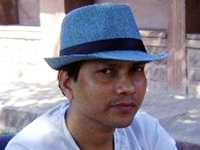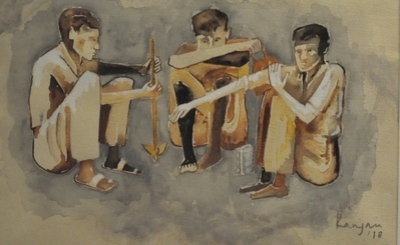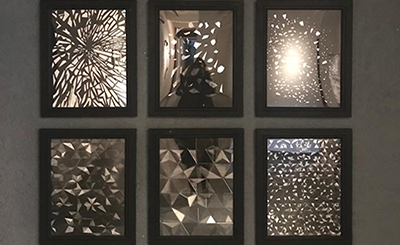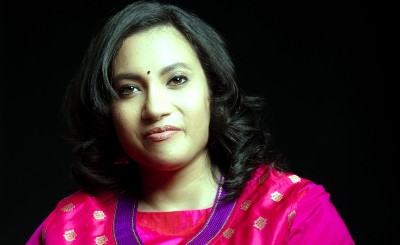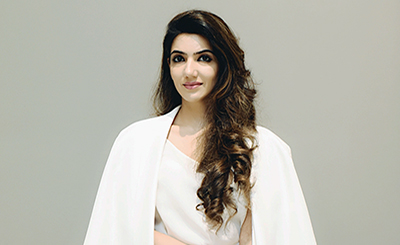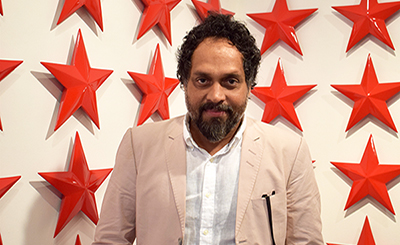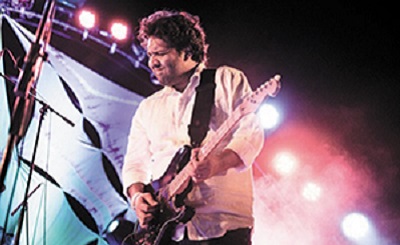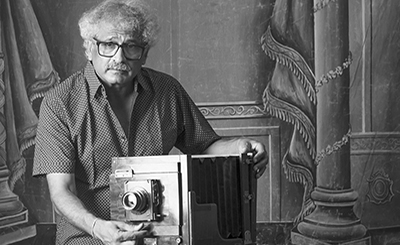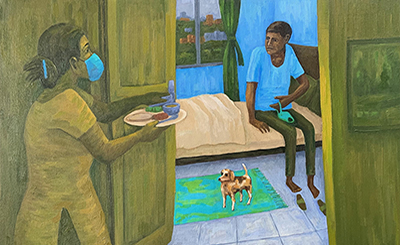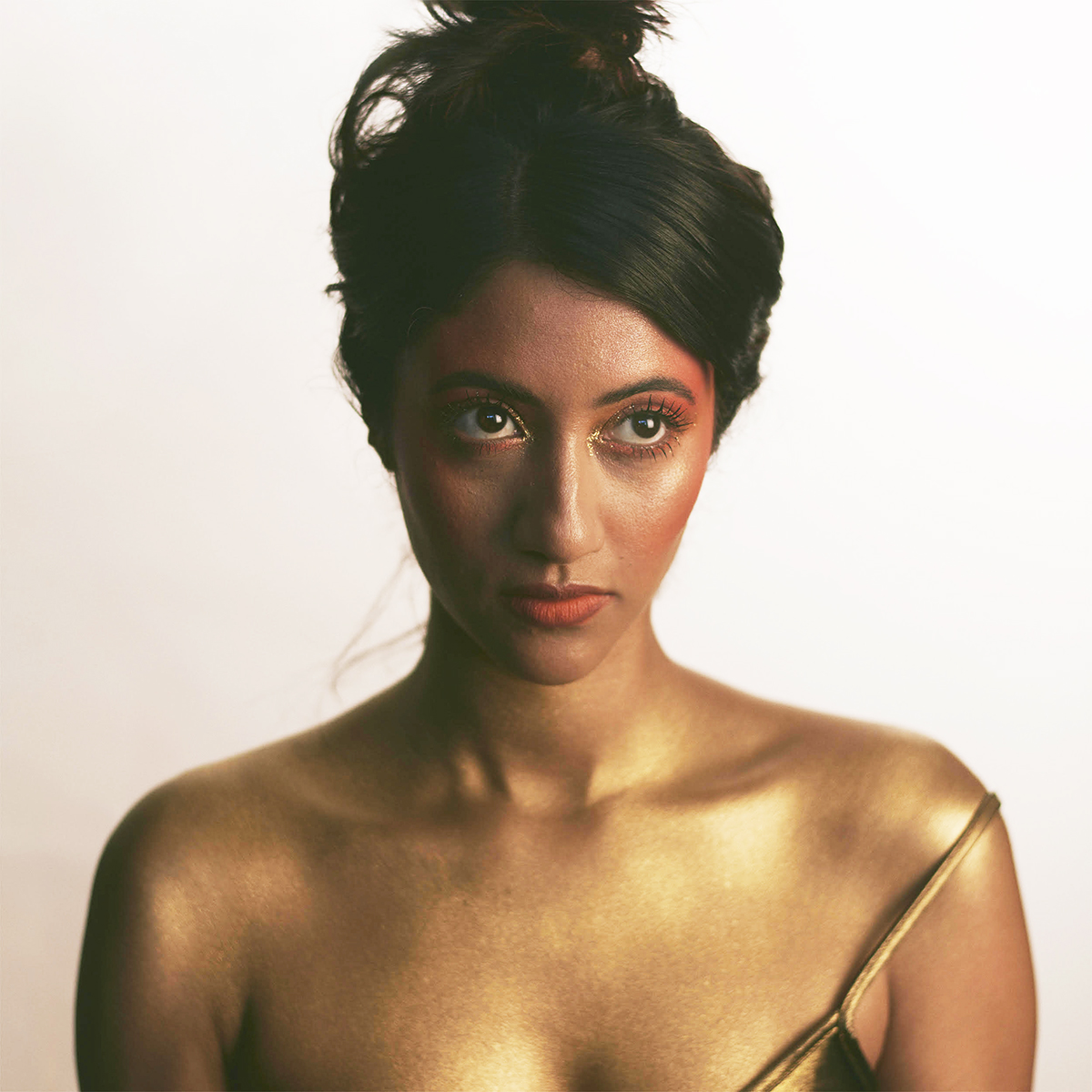
New York-based singer and songwriter Priya Darshini. Photo: Ben Rosser
When the nominees were announced for the 63rd Grammy Awards on November 24, a tamizh ponnu, now living in Brooklyn, New York, discovered that a little dream of hers, “tucked away somewhere”, had been fulfilled. “I never actually thought too much about it, partly perhaps because I never imagined it would happen, and partly because it wasn’t a goal,” says singer and songwriter Priya Darshini, 36, who has been nominated for the coveted award for her debut album, Periphery, which was released on May 15 this year, under the New Age album category.
Soon after the nominees were announced, the unassuming and quietly assured songstress wrote in a post on Instagram: “I’ve dreamt of this day since I was little, but I never really thought dreams like this could come true for someone like me — a tamizh ponnu [Tamil girl] from Goregaon, Mumbai! Thanks to the universe for proving me wrong.”
The honour of being nominated for an award that has the likes of Beyoncé, Taylor Swift and Billie Eilish as nominees under different categories has still not sunk in. The nomination has struck as “surreal” to the singer as Periphery is a live album, recorded entirely on one mic, unlike most of the other albums nominated for the award that are recorded in a studio, where there is a luxury to record, edit, add effects and mix music.
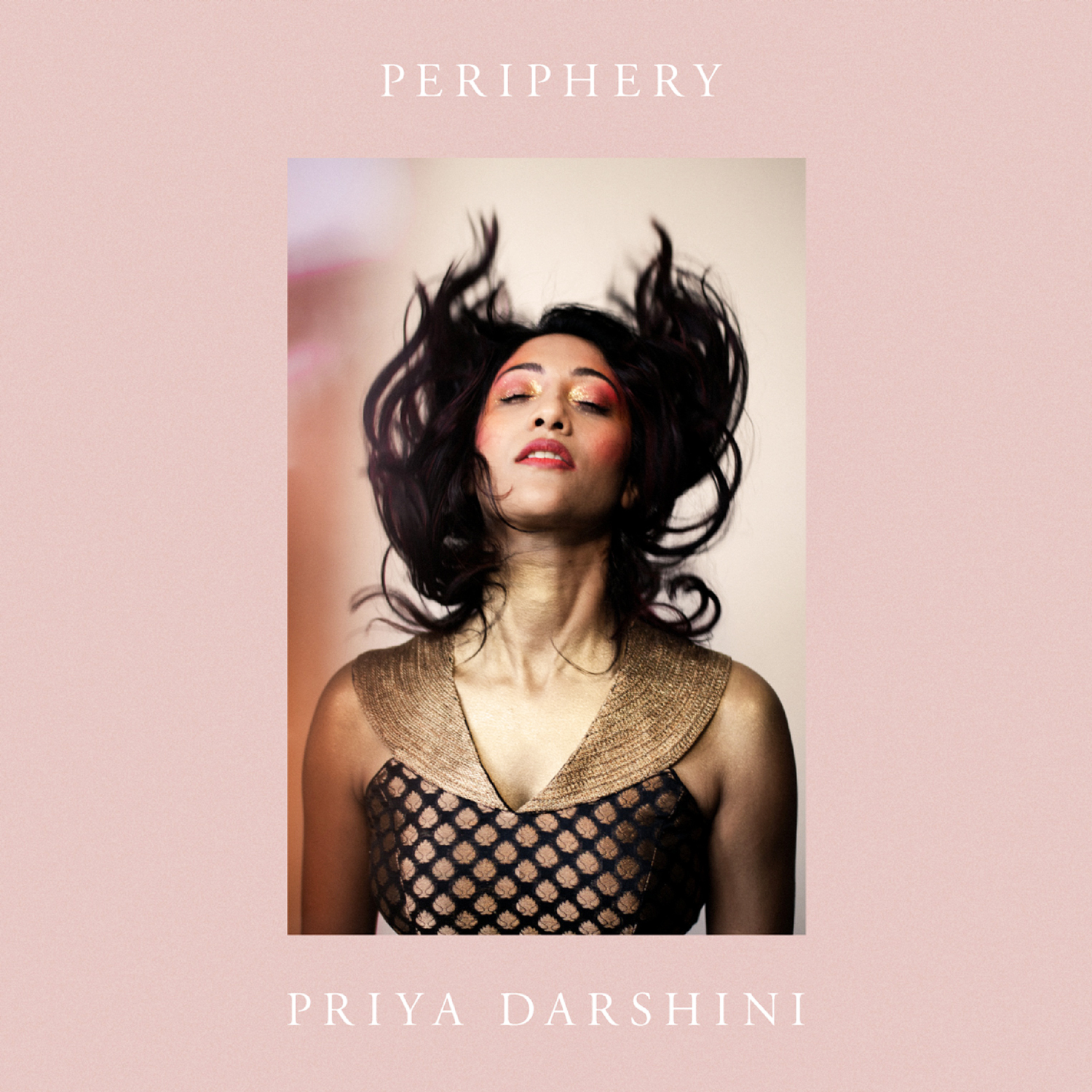
Till now, Priya has kept herself immersed in her art, solely focused on making music, without indulging in the distractions of hankering for followers, both of her music and on her social media accounts. On Instagram, for instance, she has nearly 6,000 followers, as against another singer with an India connect, Anoushka Shankar (nominated for Love Letters under Best Global Music Album category), whose followers run into 1,28,000. The Grammy nod has come as a validation for the kind of music Priya makes — soulful and sublime — and of her single-minded artistry.
The nine tracks (pop and American folk, imbued in the Hindustani classical music) that are part of the album include Home, Jahaan, Loneliest Star, Space River, Cocoon, Banyan Tree, Des, Sanware Sanware and Absent. They are all ethereal and burst with unfettered energy, with a unique architecture of sound that is remarkable in a debut album. Her voice is clear, soothing, dream-like. Its pitch and range — from gentle to a falsetto — is soprano-like. Combined with the alchemy of instruments — hammered dulcimer (Max ZT), cello (Dave Eggar), percussion (Chuck Palmer) and drum (Will Calhoun) — the album is a valuable addition to the incredibly eclectic pool of new-age albums in the world. She dedicates it to “the ones struggling to identify themselves in the world, the ones that live with complex socio-cultural identities, and the ones trying to find a home in a world that others them consistently.”
Trained in Hindustani Classical music, Priya has enriched her music through collaborations. with a wide range of artists from Pearl Jam to previous Grammy Award winners Roy “Futureman” Wooten; Jeff Coffin, virtuoso ukulele player Jake Shimabukuro, Karsh Kale, Philip Lassiter, Silk Road Ensemble’s Shane Shanahan; and many more.
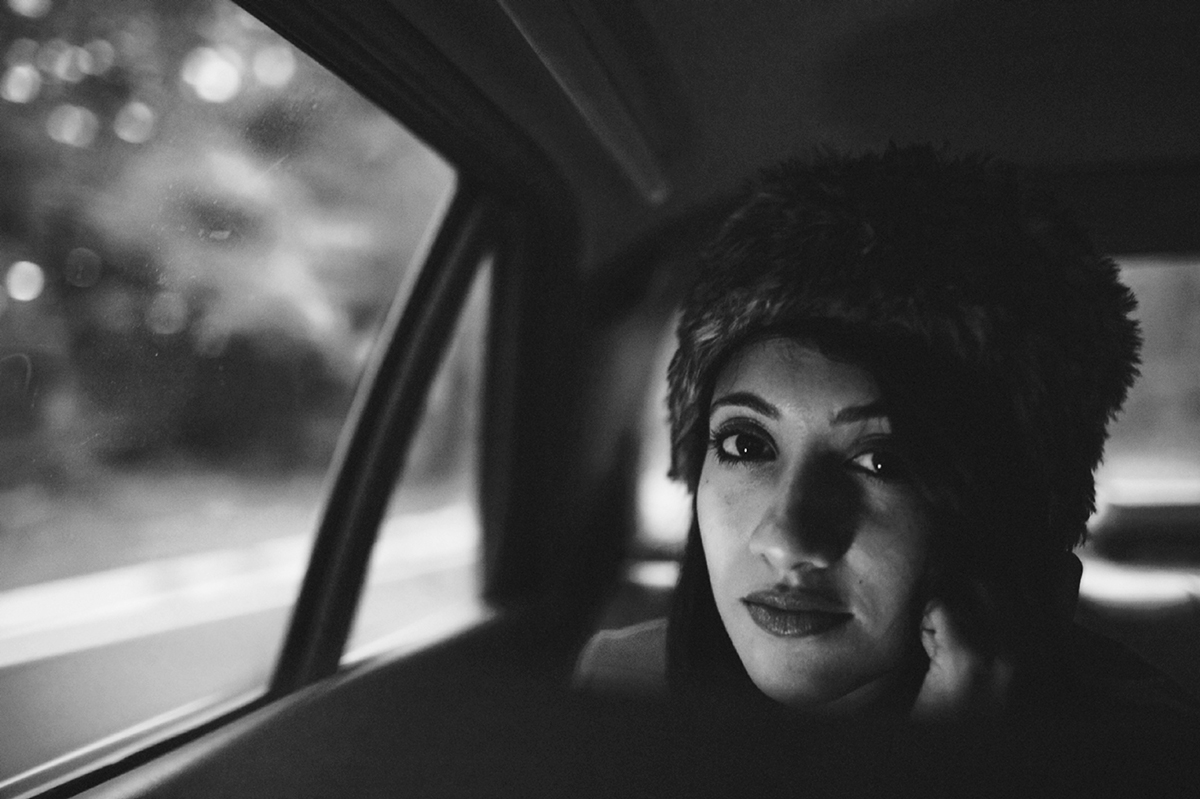
Trained in Hindustani Classical music, Priya Darshini has enriched her music through collaborations. Photo: David Sosnow
The eclecticism she brings to her album has been informed by her own experiences and identities. She has donned several proverbial hats: sung in TV and radio commercials and films, acted in films, run a 100-mile race in the Himalayas — the first and the youngest Indian woman to do so. Besides, she has also been an entrepreneur and has been part of initiatives working in the areas of human rights and social justice. Excerpts from an interview:
Nawaid Anjum: Your debut album, Periphery, is among the five albums nominated for the Grammy in the Best New Age Album category. For an album that was recorded live on one microphone, that’s quite a feat. How was the process of conceiving and recording this album from the perspective of a singer, songwriter and collaborator?
Priya Darshini: David Chesky (American pianist, composer, producer and arranger), who is the co-founder of Chesky Records and HDtracks (a digital music store) saw myself, Max ZT, and Dave Eggar perform at a benefit event organized by a dear friend Dina Fanai and approached me to make this album. Chesky Records is a multiple Grammy-winning audiophile label that produces high-definition, and binaural recordings, using some of the most advanced and innovative recording tech out there. They invented this technology themselves, and coupled with careful mic placement, they have achieved the ability to capture sound in its most pure form. Their philosophy is to create the illusion of live musicians in a real three-dimensional space.
For Periphery, we recorded in an abandoned church in Brooklyn. When I realised what the recording process and tech was going to be like, I knew immediately that we would have to approach these compositions keeping all of this in mind, and allowing for the architecture, recording style and tech in the writing process. When David Chesky approached me to do this record with them, I was going through an emotionally rough time. I decided to turn all of that into this record. Max, Dave, and I wrote this record in the twelve days leading up to the recording — most often on FaceTime, as they were each touring in different places. I struggled a lot at first, with the pressure of writing a ‘good song’. I realised quickly that detaching from the results, focussing on intention and authenticity, staying vulnerable and trusting the process was the only way. I dove in deep to some challenging and difficult places to write about the things that I was processing. We each had to do that… holding space for each other through it all. The recording itself was a very emotional and cathartic process for all of us. Considering this was all live, we had to drop all our egos, and let our music come from this space.
Additionally, each of our instruments responded to the architecture of the space in a unique way depending on where we were positioned so we tried to work that into our live recording since there was no EQ, Compression or effects added to this recording. We had to keep the percussion very minimal as anything more would drown out the rest of the instruments and my voice. In fact, the majority of the percussion was performed on two Indian brooms that we bought at our local Indian Grocery! To me the ‘recording’ itself is a piece of art and a collaboration between the music, architecture and Chesky’s advanced recording tech.
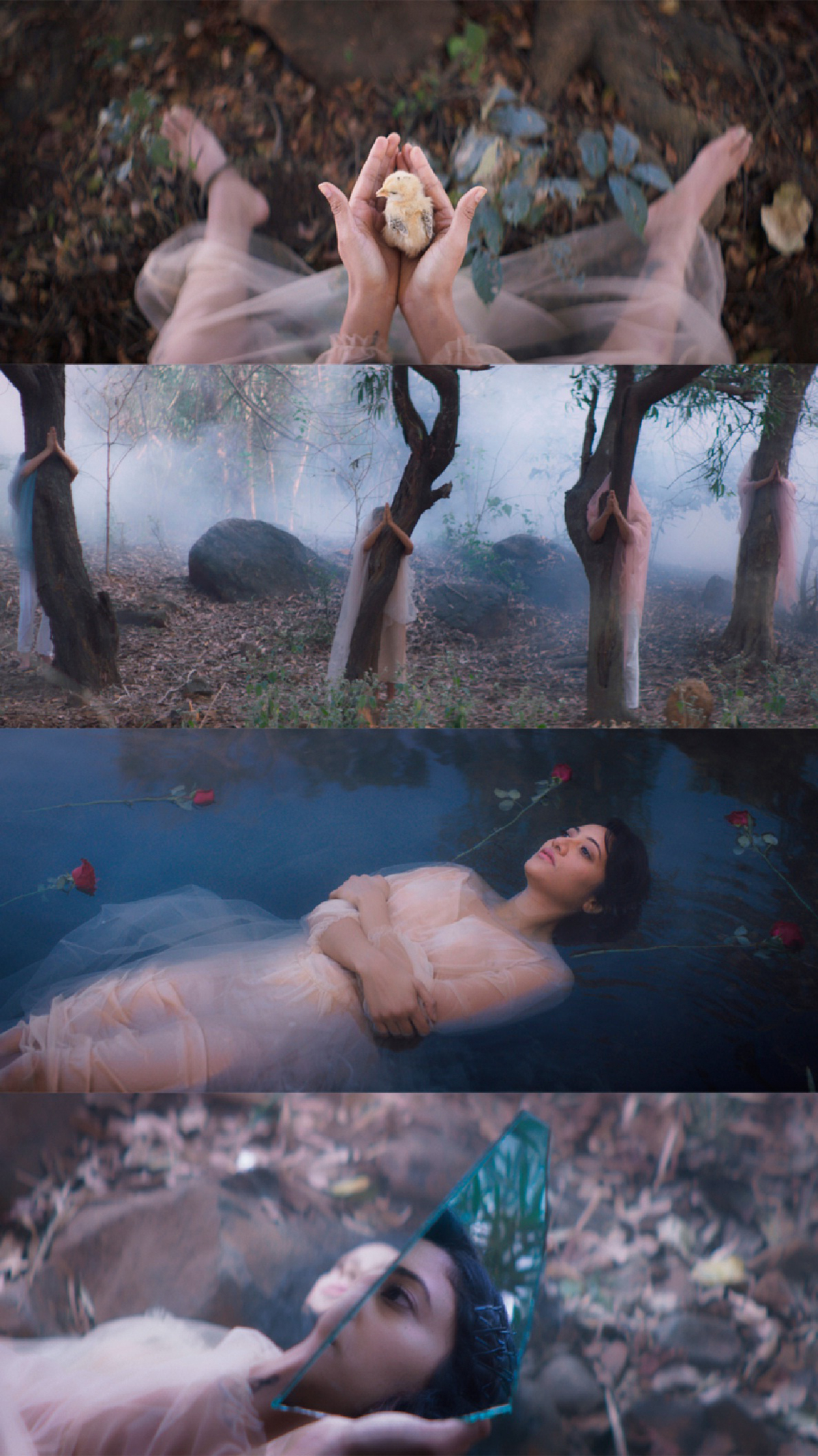
Stills from the music video of Home, one of the tracks on Periphery
Nawaid Anjum: The album brings several worlds together. It’s a thrilling fusion of different musical styles — from folk, pop, blues and jazz to the elegant elements of the Indian classical music. How does this album reflect your own influences and experiments with genres?
Priya Darshini: Thank you! I don’t think I went out with the idea of experimenting with genres or trying to sound like anything or anyone. I just stayed true to my personal experiences, to the various cultural identities that co-exist within me, and to the multiple styles of music that I have immersed myself in and studied. I let my emotions paint these musical landscapes. For people like me — those who live on the periphery of many cultures — I feel that boundaries just start to blur. And when you create from that space, and with honesty, what comes out will always be unique.
Nawaid Anjum: The theme of the album, people on the periphery across cultures and continents, whose rawness of emotions the album seeks to capture, resonates with our times which has seen a consistent othering of people of a certain race or community. Did the album emerge out of your own experience as an immigrant? How did you go about making the nine tracks that echoed the overarching theme?
Priya Darshini: Absolutely. I’ve always felt like I was on the periphery. In Mumbai, I was the ‘Madrasi’. In Chennai, I was from Mumbai. When I started to travel, I was from India. When I moved to NYC and started to live and work with people from different parts of the world, I noticed how each one of us felt this feeling of displacement. The anti-immigrant rhetoric added another layer to the complexities. Being asked “where are you from?” consistently… was a constant reminder that I was from ‘somewhere else’.
Somewhere along the way, I started to do a deep dive and ask myself why I was always missing ‘home’ no matter where I went. What did ‘home’ mean to me? Was it a place? Was it community? Was it a construct? That journey of introspection is where much of this album came from. One of the songs in the album, The Banyan Tree, is a love song for survivors. Award-winning journalist, author and cultural critic Dr. Joan Morgan co-wrote the lyrics to this song with me and it came from an urgent need to respond to all those trying to silence survivors from speaking truth to power. I just had to get it out of my system.
Nawaid Anjum: You have added several feathers to your hat. You have been an actor, athlete, voice-over artist, composer and entrepreneur. At 23, you became the first Indian woman to complete the 100-mile Himalayan Ultra Marathon. How do you see your musical journey distinct from your other endeavours? Or do they all inform each other?
Priya Darshini: I have a passion for many things and I’ve always felt restricted when I have to do one thing. One has always inspired the other, and all of my experiences inform my writing. I do love finding ways to bring some of these worlds together as they have so much in common. For a while I did feel conflicted and thought it would get in the way of my music but I really am my most creative and imaginative self when I experience life through all the varied things that I feel this deep sense of commitment and passion for. It is very important to me, to experience this gift of life and all that it has to offer, as best as I possibly can. Even though they may all seem separate, I am the thread connecting them all.
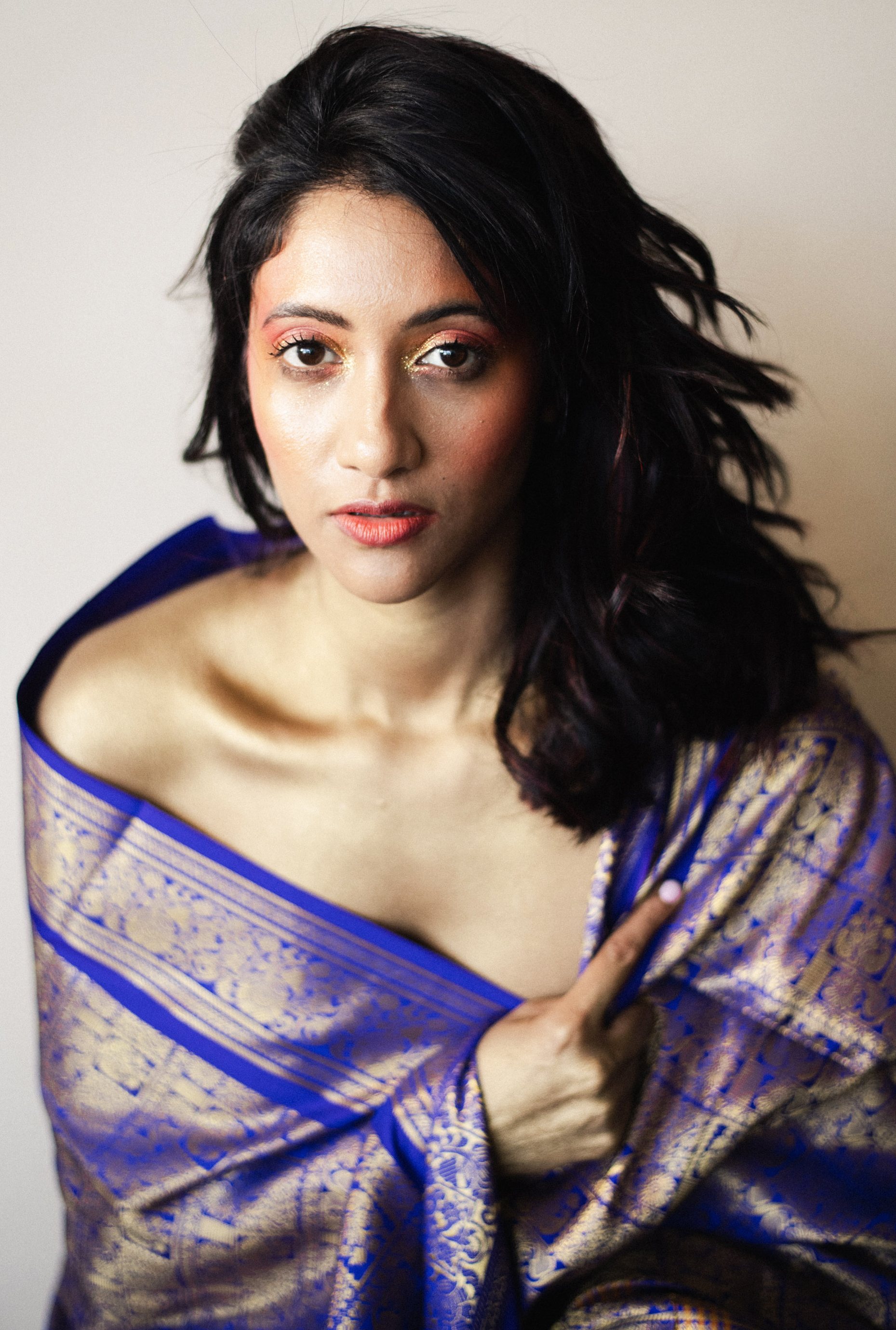
‘I’ve always felt like I was on the periphery'. Photo: Ben Rosser
Nawaid Anjum: You were born in Chennai and grew up in Bombay, where you sang songs for Bollywood. What memories do you have of your childhood and early artistic works in Bombay? What were your musical influences?
Priya Darshini: I started learning music when I was a toddler of three or four. Growing up in a musically inclined family, my early music lessons were with my mother, Kala Shyamsunder, who was trained in Karnatik classical music, but did not make it her profession, followed by my grandmother (Chandrika Priyadarshini, an acclaimed Carnatic singer and Bharatnatyam dancer). I later began studying Hindustani Classical music with my guruji Sunil Borgaonkar which I continue to do this day. Growing up, my family listened to a lot of Carnatic music, and old tamizh songs. I found myself very attracted to exploring sounds from around the world. It was my way of travelling to the faraway lands. My father, R. Shyamsunder, a planning engineer, worked in Dubai or Muscat at the time and he would bring home a lot of mix tapes which were mostly music from UK and America.
I later started collecting music from anyone and everyone I knew, and would pester them to bring me back music from their travels. Overtime, I had a collection of music that was incredibly diverse and one that I was immensely proud of. After I went through a Michael Jackson phase in my early teens, I discovered Ella Fitzgerald, Miles Davis, and John Coltrane, and that’s when my love affair with jazz began. Discovering Björk, led me on a completely different journey. I started singing for television commercials and doing voiceovers in my teens as well. I sang with several different independent bands — from metal to pop to our version of what we thought was jazz. The Independent music industry was quite a bare structure at the time so when I was offered to sing in Bollywood, I took it, albeit for a brief few years. It was the only way one could make a living in music at the time.
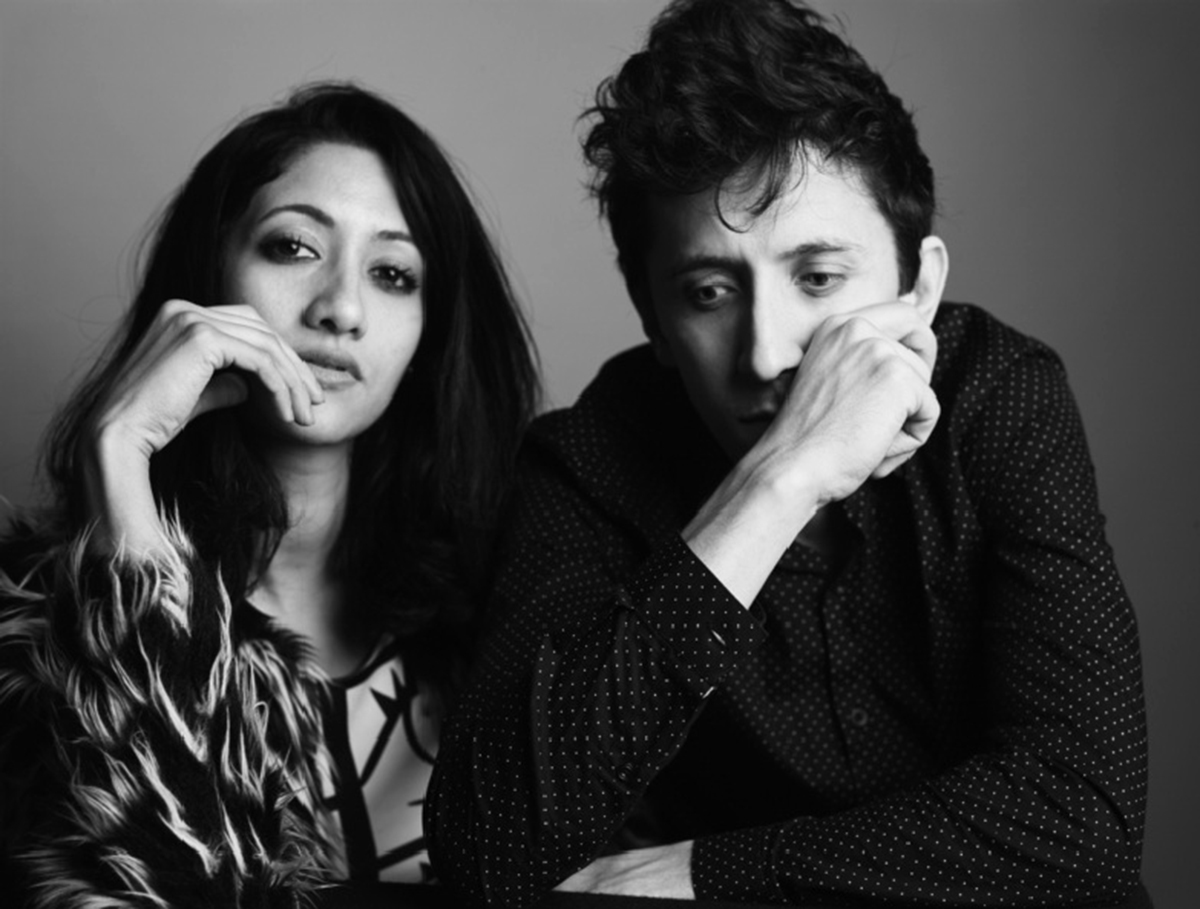
Priya and Max ZT. Photo: Ben Rosser
Nawaid Anjum: Your husband, Max ZT, a pioneer of Hammered Dulcimer, is also one of the collaborators for this album. How did you guys meet? What drew you both to each other?
Priya Darshini: Max and I met in 2010, when he was living in India on the AIIS fellowship studying with the santoor maestro Pandit Shivkumar Sharmaji. I was going back and forth between Nashville and Mumbai at the time. He had spent several years in Senegal studying with the Cissoko family prior to coming to India to study with his guru. What drew us to each other was our journey inwards. We were both on an introspective path, largely informed by our journeys in music and our travels. He went East, I went West, and somewhere, sometime in the middle, we fell in love.
Nawaid Anjum: The album scores high on range, technique and the unconventionality of compositions, as well as the relevant lyrics and enchanting vocals. How do you settle on whom to collaborate with for different songs to achieve this virtuosic elegance and harmony?
Priya Darshini: Thank you! That’s very generous. The nature of this album necessitated a deep dive into a very vulnerable place, to introspect and address some really difficult issues. It was important to me that the musicians involved held a safe space for each other to exist in that place of authenticity. Max ZT (hammered dulcimer), Dave Eggar (cello), and Chuck Palmer (percussion) are on all the songs. And Will Calhoun need to connect with musicians who understand this vulnerability. It is in these spaces where we find truly pure windows into our selves. Working with Max and Dave was a dream, and I couldn’t have asked for better collaborators.
Nawaid Anjum: What does a Grammy nomination mean to you? Who are some Grammy winners in recent years you have looked up to?
Priya Darshini: Honestly, it hasn’t really hit me yet. It still feels quite surreal. Even though it was a little dream tucked away somewhere, I never actually thought too much about it, partly perhaps because I never imagined it would happen, and partly because it wasn’t a goal. I don’t think receiving a nomination or an award makes anyone’s artistry any better. So many incredible artistes, and albums have never won these awards. But to get one, in such a tough industry feels like an affirmation of all the work that I have put in, and the choices I’ve made in my life. It feels like a dream come true, and I am deeply grateful for it.
In terms of other nominees or winners, the list is very long! But I am very excited and proud for this year’s list of nominees — a large number of who are women! I am especially thrilled for my dear friend Anoushka Shankar who is nominated for her seventh Grammy, for her stunningly beautiful album Love Letters. I’m also really happy for my friends at Snarky Puppy who have been nominated again this year.
More from Arts
Comments
*Comments will be moderated



